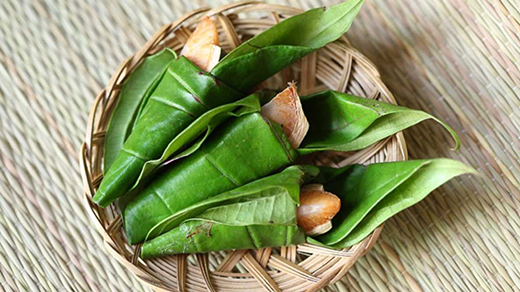Chewing of betel quid not harmful, says study
Chewing of betel quid not harmful, says study
Mangalore Today News Network
Mangaluru, Oct 29, 2020: Traditional chewing of arecanut (without any additives) or Betel Quid (BQ) with or without Tobacco (BQT) is not harmful to humans, a study by ICAR-CPCRI and city-based Arecanut Research and Development Foundation (ARDF) has revealed.

“There was no significant difference between non-chewers and chewers on health issues,” according to the study’s findings which were published by Directorate of Arecanut and Spices Development in the Indian Journal of Arecanut, Spices and Medicinal Plants (Vol 22-I).
Researchers C T Jose, S Keshava Bhat, K P Chandran, S Jayashekara and Ananda Gowda decided to conduct a study on the impact of arecanut chewing on human health and health benefits. The house-to-house survey conducted in Kasargod (Kerala), Dakshina Kannada, Shivamogga and Uttara Kannada districts (Karnataka) in June 2018 covered 917 people who chewed betel quid (a mixture of arecanut, leaf of Piper betle and lime (calcium hydroxide) with or without tobacco and non-chewers.
World Health Organization estimated that around 600 million people chew betel nut around the globe in some form or another. In countries such as Taiwan, Philippines and Papua New Guinea, people use the inflorescence of P betle instead of its leaf. In India, the betel quid chewers use only the leaf of P betle and not its inflorescence, which contains a good amount of safrol--a carcinogenic compound.
The leaf of the vine does not contain that chemical but contains hydroxichavicol an anticancer drug. In conformity with previous studies, no incidence of cancer was found in arecanut or in BQ chewing people interviewed for the study. But there was one incidence of cancer in BQT chewing group (0.23%) and two cases of cancers in non-chewing group (0.87 %).
Anti-cancer principles in arecanut and betel leaf would have reduced cancerous effects of tobacco in BQT, researchers said.
The present study reveals that traditional chewing of arecanut (without any additives) or betel quid with or without tobacco is not harmful to humans. The study observed that tooth problems were significantly more in non-chewers when compared to traditional chewers with or without tobacco.
Traditional chewing dates back to 550 BCE
Since time immemorial, arecanut along with other products is being used for chewing throughout the world especially in lndian sub-continent and many parts of southeast Asia. In India, the use of arecanut has been quoted as early as 1300 BCE by Sisu Mayana in ’Anjana Chaitra’ (Bhat and Rao, 19A) and the practice of its chewing to 550 BCE as mentioned by Magha in ’Shishupala Vadha’ (Rao, 1982).
Courtesy:Deccan Herald
- Sigandur bridge to be unveiled on July 14, Union ministers Gadkari, Joshi to attend event
- Odisha man among 3 Indians kidnapped by Al Qaeda-linked group in Mali
- Nirav Modi’s brother held in US on ED, CBI extradition request
- Uddhav hints at joint bid with Raj for BMC, says will capture power in Mumbai and Maharashtra
- Pralhad Joshi meets key local leaders in Karnataka to address factionalism in BJP
- Dalai Lama says he hopes to live for another 40 years ahead of his 90th birthday
- Death of five tigers in MM Hills: Eshwar Khandre suspends two officials
- IndiGo begins first long-haul Mumbai–Manchester flight with Dreamliner
- ’India was battling not one but 3 adversaries, China used Pakistan conflict as live lab’
- No coercive steps against BJP MLC and Opposition Whip N Ravikumar: High Court
- Defamation case by BJP: Karnataka High Court stays trial proceedings against DK Shivakumar
- Vijay is TVK’s CM candidate for Tamil Nadu polls; no alliance with BJP
- Ivan D’Souza urges state to hold cabinet meeting in Mangaluru, pushes for renaming of Dakshina Kannada district
- MLA Kamath extends support for renaming Dakshina Kannada to Mangaluru District
- Rape victim gives birth: Accused arrested; Puttur MLA Ashok Rai visit the victim
- Bantwal: Man dies as car overturns after hitting road divider in Thumbe
- Puttur student cheating case: Youth held for allegedly raping woman on false promise of marriage
- Moodbidri: Obscene video of politician found on Hindu Jagaran Vedike leader’s phone; FIR registered
- Sullia: Young doctor succumbs to injuries after KSRTC bus and bike accident near Sonangeri
- Uppinangady: Head-on collision between lorry and Eicher truck; driver seriously injured
- Praveen Nettaru murder case: NIA arrests accused Abdul Rahiman after arrival from Qatar
- MRPL distributes personal hygiene kits to bedridden endosulfan victims
- Udupi: Drug cartel active across four continents busted in multi-agency operatio
- Mangaluru to get tallest coastal flagpole at Bavutagudda
- Ullal: 3 sentenced to 10 years in child trafficking case
- Daiva’s prediction comes true: Janardhan Reddy walks free from jail
- Skills and Competencies Take Center Stage at MSN Dialogue Series
- Court remands Maoist Lakshmi to six-day police custody
- Sandhya Shenoy honored with Society for Materials Chemistry Medal-2024
- White Cornus Apartment in Mangaluru
- City girl wins first place in state-level spell bee competition
- Alleged ‘Love Jihad’ Case in Mangaluru: Woman left home voluntarily, says police
- Girl fatally struck by reckless two-wheeler near Belman
- New residential complex for the judges inaugurated in Mangaluru
- Absconding accused nabbed after 8 years
- Truck with cylinders turns turtle in Beltangady
- Bhoota Kola artist dies of cardiac arrest
- Development of the country should be our goal: Ganesh Karnik
- Container truck gets stuck under Modankap railway bridge
- Truck crushes bike’s pillion rider near BC Road
- CITY INFORMATION
- TRAVEL
- TOURIST INFORMATION
- HEALTH CARE
- MISCELLANEOUS




 Write Comment
Write Comment E-Mail
E-Mail Facebook
Facebook Twitter
Twitter  Print
Print 

